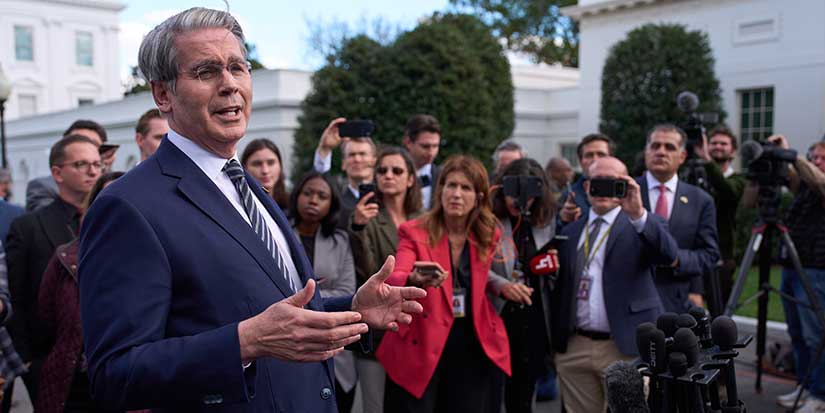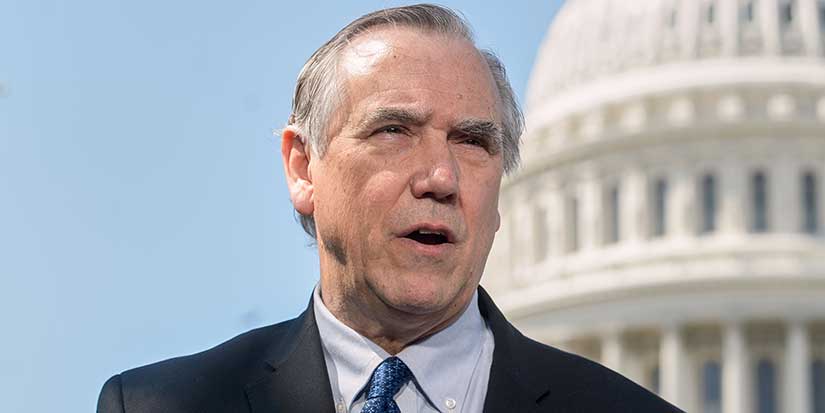National News
Tax cuts, dropping U.S. tariffs will hurt Ottawa's fiscal position: Desjardins report
Published 10:42 PDT, Wed October 22, 2025
Last Updated: 1:05 PDT, Wed October 22, 2025
—
A Desjardins economist argues the surge in government spending in the Liberals' upcoming fall budget is a "gamble" that will lead either to unsustainable levels of public debt or a new era of economic growth.
Desjardins deputy chief economist Randall Bartlett released an analysis of federal finances Wednesday ahead of the much-anticipated fall budget, set for Nov. 4.
In an interview, he called this year's federal budget — the first under Prime Minister Mark Carney — "unprecedented."
"What sets this budget apart from previous budgets is the size of the deficit outside of a recession or pandemic," Bartlett said.
Bartlett forecasts the federal deficit will hit $74.5 billion for this fiscal year — $6 billion higher than projections tabled last month by interim parliamentary budget officer Jason Jacques and well up from Desjardins' $46.5 billion estimate of the previous fiscal year's deficit.
Bartlett said that, outside flashpoints like the COVID-19 pandemic or recessions, the closest comparison to the scale of this deficit would be Canada ballooning debt crisis of the 1990s, which required a sharp fiscal correction. Ottawa's fiscal position is much stronger today, Bartlett noted.
Finance Minster François-Philippe Champagne has argued the threats to Canada's economy posed by U.S. tariffs and global trade disruption require a "generational" level of investment.
While governments often run steeper deficits in times of economic hardship, Bartlett argued the situation is different today.
Despite a contraction in the economy in the second quarter, Desjardins — along with most other economic commentators — is not currently forecasting a recession in Canada.
Much of the federal spending outlined since the spring election is not the kind of temporary support Bartlett said he would expect to see in a recession. Rather, the spending on defence and infrastructure investments is geared toward long-term economic restructuring for sectors hit hard by tariffs.
"Ultimately, the proof of the pudding is going to be in the tasting as to whether or not this substantial increase in spending is going to be effective in addressing those concerns," Bartlett said.
Desjardins says the federal government's fiscal position was undermined by Ottawa's decisions to cut income taxes over the summer, to forgo a planned hike in the capital gains inclusion rate and to drop counter-tariffs on the United States.
While those moves could spur stronger economic growth, Desjardins estimates that boost won't be enough to offset foregone tax revenue.
The lead-up to the long-awaited federal budget — which will now be tabled in the fall going forward, instead of the spring — has been dominated by arguments over the prudence of running steeper deficits.
Jacques sounded the alarm last month over what he called an "unsustainable" pace of public spending.
He estimated that the federal debt-to-GDP ratio — previously a key fiscal anchor under Justin Trudeau's Liberal government — is no longer on a declining path over the medium term. Desjardins also predicts that metric will rise over the next few years.
The Liberals have promised a plan to balance the operating side of the budget in three years — after which point all deficit spending would go toward capital — as a new fiscal anchor to show government prudence. Ottawa also has pledged to show a declining deficit-to-GDP ratio in the upcoming budget.
Both Bartlett and Jacques have argued the federal government's definition of capital spending is quite broad, which limits its usefulness as a benchmark of fiscal prudence.
Conservative Leader Pierre Poilievre has pushed for the Liberals to cap the deficit at $42 billion this year — the level projected in the fall economic statement from late 2024 — and has accused the Carney government of engaging in "reckless" spending.
Other experts, including former parliamentary budget officer Kevin Page and International Monetary Fund head Kristalina Georgieva, have argued Canada has one of the most prudently managed debts in the G7 and has the capacity to run steeper deficits.
In question period on Wednesday, Carney laid out his argument for using up that fiscal room.
"What this government is going to do is use that deficit to grow this economy like it's never seen before," he said.
Bartlett, who worked in the parliamentary budget office as the lead economic forecaster from 2012 to 2014, said he respects the various commentators in the budget conservation.
"Reasonable people can disagree," he said.
Bartlett said he believes Canada's fiscal position is at an "inflection point."
If Ottawa's sizable spending plans do spur a new wave of investment and economic growth in Canada, the federal debt could return to a sustainable path in due course. But if the spending doesn't pay off, Canadians could end up saddled with an unsustainable level of debt.
"How this evolves over the next few years is really going to come down to resolve, execution and competence on the part of the federal government as to whether or not this gamble is a success or whether or not it is a failure," he said.
Bartlett also warned Canada ought not to take its strong global credit rating for granted.
In his view, credit ratings are determined by two factors — an absolute rating and a relative one.
While the lack of a declining debt-to-GDP ratio means Ottawa's finances are "heading in the wrong direction," Bartlett said he expects a similar deterioration among other G7 nations will still leave Canada better off than most in the global trade disruption.
"In relative terms, we're still likely to be one of the cleanest dirty shirts in the fiscal laundry basket and we don't expect Canada to see its debt downgraded imminently," he said.
– Craig Lord, The Canadian Press































